- Home
- Adele Griffin
Picture the Dead Page 2
Picture the Dead Read online
Page 2
Suddenly Quinn’s hand wraps hard around my wrist. He grips me tight, his bones shifting around mine. I wince, but he won’t let me go. “Jennie, promise not to listen to gossip.”
“What gossip?” His hand doesn’t loosen. Fear holds me in place. “What do you mean? Is there something else I need to hear? Because I’d rather it come from you than the servants.”
“Only what I’ve said. War changed us. We always meant to be decent. We meant to do right. The dead cannot defend themselves, but surely they have paid enough.”
“Of course,” I murmur.
He releases me, but Quinn has a secret he’s not telling.
The dead cannot defend themselves. It’s hard to imagine William Pritchett being less than absolutely decent, or doing anything that he needed to explain. Boisterous, spirited Will, who loved nothing better than camping and fishing and sleeping under the stars, was tailor-made for military life. Could he have changed so much?
“Don’t say anything to Mother. Let me be the one to give her the news.”
“She’s not a fool. She and Uncle Henry know as much by what you haven’t said.”
Quinn nods. “Send her up as soon as soon as she’s ready.”
I nod, but Quinn’s eyes are closed again. He has dismissed me.
4.
Goodness. If I didn’t know better, Jennie, I’d think you suffer from club foot.” Aunt Clara doesn’t take her eyes off her toast. Her delicate jet earrings tremble as her knife scratches at the toast like a cat’s paw, buttering every inch. Strange how even the most mundane habits of dislikable people can strike such harsh chords. I even hate the way Aunt butters.
“I’m sorry, Aunt.” I tiptoe to my chair. It’s all I can do to keep up a pretense of normalcy. The idea of food and polite conversation is very nearly unendurable.
Will is gone. Will is gone.
“Don’t be sorry to me. It’s Quinn you’ll wake.” Her eyes are silver, like a wolf. They are Quinn’s eyes, but cruel.
“He’s already awake,” I return. “I took him some blooms from the garden.” I unfold my napkin as Mrs. Sullivan bustles through the dining room with the sausage and eggs and offers the tray to Uncle Henry. The yolks of the eggs glare at me. I swallow the bile in the back of my throat.
“Perchance your billy goat’s trot is even more effective than Hannibal’s wake-up call.” Aunt poses it as a witticism, but I feel the lash of her thought. I’ve never been Aunt Clara’s ideal specimen of niece, with my flat feet and too-curly black hair and wide-lipped laugh though there’s been no reason for laughter these past months, and certainly not this morning.
Aunt Clara has alternately thrown her thunderbolts of disdain and rained down her indifference on me from the day Toby and I arrived at her door, nearly four years ago. Uncle Henry’s half sister’s orphaned children. Not only were we barely blood relations from the bottom of the social heap, but we were willful youngsters at that, prone to speaking without thinking and doing without asking permission. If it hadn’t been for our doting eldest cousin, Aunt probably would have turned us away within that first month.
“He wants to see you after breakfast, Aunt,” I say. “He has something to tell you.”
She nods, but her lips sink and her face goes pale. “That was my intention.”
“He’s asked me to tend to him regularly, though. As his nurse.”
“Nonsense,” says Aunt Clara, with a sweep of the jam spoon. “That’s a mother’s duty.”
Uncle Henry rubs at the back of his balding head, his overused signal that he is uneasy with the friction in the room. Neither Aunt nor I pay him any attention.
“He was very specific,” I insist, my words racing out quicker than my understanding of them. I am lying, but a spy must embrace the unexpected. If I don’t put myself to good use, I’ll have no reason to be here at Pritchett House, and Aunt Clara would like nothing better than to pounce on this point.
After all, I am sixteen years old, nearly grown, my school days finished, my fiancé dead on the battlefield, my future as valuable as a wooden nickel. Death tolls are delivered with the paper every morning, and it’s not as if I haven’t imagined this dark hour. I need Quinn as never before. He’s Aunt’s favorite, her baby boy, but Aunt doesn’t have the patience to nurse him or for that matter, anyone to health. If I care for him with diligence, or so I tell myself, the family’s gratitude will keep me here until I find a better plan. But if I’m ahead of Aunt Clara, it is only by a step.
“Absurd,” she mutters, almost as an afterthought, but then she’s silent.
Perhaps this is our last breakfast together. Once Quinn shows her the letter, Aunt Clara might take to her bed, her antidote to the unexpected. Days could pass without a glimpse of her. Possibly she will become deranged, and Uncle Henry will pack her off for an extended stay at Taunton, the state lunatic hospital.
It could happen. In the years that I have lived under the Pritchett roof, I’ve witnessed Aunt’s sulks and tantrums, her mood shifts from shrieking laughter to boiling rage, followed by withdrawal. Yet her resentment of me is a constant foul weather. It is little help that I resent her right back. In my scrapbook I’ve taken out my anger on her picture, knowing she’d never pull her bulk up the stairs to snoop through my possessions.
In the baleful silence, I watch her chew her toast, taking her time. Deliberate, controlled, delaying what waits for her upstairs. No, she would never indulge herself even the briefest lapse of real sanity. Not while I am under this roof.
If anyone is in danger of being packed off, it is I.
5.
Will is dead. The days are interminable. Uncle Henry uses business as his escape, and he takes the carriage to Boston nearly every morning. Aunt refuses to leave her room. She won’t see visitors and accepts only tea and holiday fruitcake brought to her door by a twice-outraged Mrs. Sullivan, who thinks liquor in cakes is a sin and that food in bed brings mice.
Quinn may be his mother’s favorite, but she is far too lazy to commit herself to the daily duties of his care. I move in quickly. Bustling about him, serving or clearing or tidying up, my hands are never idle.
I yearn to ask him more about Will, but Quinn makes conversation nearly impossible. Clearly he prefers his books and privacy to anyone’s company, and when I arrive with fresh pitchers of water or bowls of soup or clutches of firewood, he exchanges only the barest pleasantries, and always in a voice that suggests he’d prefer our chats to be as brief as possible. But this is how he’s always been save last winter, when he’d stolen a kiss behind the pantry door, his breath sweet with mulled wine, his silver eyes sparkling with mischief as his hands made a vice round my waist.
“Twenty-one inches, I wager.” His words wet in my ear, and I was sure he’d have moved for a handful of my bottom next if I hadn’t wrenched away, too shocked to speak. I’d never mentioned the incident, neither to his brother nor mine, and I was sure he’d long forgotten it.
“He is still so arrogant,” I whisper to Toby’s sympathetic silence.
But that’s not quite true. Quinn is different. His sleeping is fitful, and more than a few times I’ve entered his bedroom presuming he was deep in conversation with Uncle Henry, only to find him quite alone and talking to himself. When he does leave his room, it’s always without warning, and always many hours after the house has retired, to roam outside. Empty bottles of morphine are strewn on the floor beneath his bed. His strange behavior isn’t lost on the others.
“I do think Quinn’s gone off his head a bit, Miss,” Mavis confesses.
“He’s in mourning. We all are.”
She curls her lip, unconvinced. “He’s reliving his battles in his head. Many’s the night I spied him through my window wandering the garden, cursing and shouting. The day girl’s seen him, too.”
“He’s in pain. When the morphine subsides, it makes him wakeful.” Outwardly I shrug it off, though I, too, have stood in moonlight at my dormer, watching Quinn pace the garden border.
I nod. “It is. And you mustn’t speak of it either, Mavis. Quinn’s health is nobody’s business but our own.”
In her too-hasty nod, I sense Mavis has told her sister, Betsey, who is the Wortley family’s cook. “Why’d he cover the mirror, d’you think, Miss?”
“He doesn’t like to see his face, with his eye so badly wounded,” I guess. “We’ll have to be patient. It will take a while for his eye to heal.” I can tell that my answer leaves Mavis unsatisfied.
My old friends at Putterham School would look down their noses at my intimacy with Mavis, but I take comfort in her company the same way I take warmth by the kitchen hearth, where I’m rescued by practical tasks. There is no place in wartime for a lady of leisure, and the kitchen is Pritchett House’s hub of information. A spy can move in any slipstream. Scrubbing parsnips or peeling carrots, listening to the odd wag from the delivery boy, eavesdropping on the hired man’s ribald jokes or recounts of his exploits at The Black Eye his tavern of choice I can loosen the hinges on my troubles. I collect gossip in much the same way I collect items for my scrapbook: warily, delicately, and with great care that I am not observed.
The kitchen is no place for a lady, but surely I am better off here than upstairs scribbling in my diary, pacing the halls, staring into mirrors or out windows and half listening to ghosts, and waiting all the while with a worried heart for Quinn to rouse and turn his cold stare on me.
“You ought to go comfort Missus Pritchett,” Mavis had implored one afternoon, passing me on the scullery steps. I’d looked up from my task, scaling cod for a chowder, the fish lumped in my apron and the scraps pail wedged between my ankles. “You both loved Mister William. Let it draw you together instead of apart.” Her bony hand had briefly squeezed my shoulder. “You got no business down here. You go remind those Pritchetts that you’re still family.”
She was warning me. Yet I couldn’t muster the energy to tend to my aunt. The few times I had, I’d hated every moment.
“You’re lucky, you know,” she’d decreed bitterly as I arranged the silver service to her liking and poured her first cup of peppermint tea.
“How is that, Aunt?”
“You don’t know the intensity of a mother’s love.” Her eyes were baleful, her pudgy finger crooked.
“I loved him, too, Aunt Clara.” I moved away to re-swaddle the bed iron so that I wouldn’t have to look at her.
“Yes, in your own, childlike way. But not profoundly.”
It would be so easy to agree. But I despised her for discounting my grief, and it surely showed in my face. How could it not?
Next time, I let Mavis take care of the tea service, stopping in just long enough for an obsequious curtsy and to slip a brooch from the top of her dresser into my pocket. I didn’t trust myself not to hold the iron too close to her toes, or to upend her tea in her lap.
Family, indeed.
On Christmas Day, however, Mavis’s warning comes back to sting. We’ve left Quinn behind to attend church. It is my first outing since his return.
At least it’s a diversion. I feel unfamiliar to myself a secret widow in a starched black dress. I stare out the rocking carriage, with its passing convergent view of Jamaica Pond now in steely winter freeze.
Uncle Henry and Aunt Clara sit side by side and in hushed voices decide on a service for Will. It will be a sort of funeral, body or none, with selected hymns and readings. All planned for sometime after the spring thaw.
As I try to catch bits of talk, it dawns on me that Aunt Clara hasn’t once consulted my opinion on these arrangements.
As if to emphasize this point, as we turn up the churchyard gates, Aunt jerks forward, her palm outstretched. “Why, Jennie, you are still wearing your engagement ring!” she exclaims. “Of all preposterous sights. Give it here at once, before anyone in the congregation sees it on your finger.”
“Clara, dear,” says Uncle Henry. “Now is hardly the time.”
“That ring is no longer hers to wear. It is a Pritchett heirloom. Unless one is a nun, one cannot be engaged to…a spirit.”
“Yes, of course, but…” Uncle Henry lapses off, astonished, as always, by Aunt’s vile outburst but unable to find the words to refute her. He rubs the back of his head.
“Will was far too sentimental,” Aunt continues, daubing her eyes. “Any adult can see this for what it was a fickle vow from a boy too young for marriage to a girl too giddy to know better.”
“He loved me,” I whisper. “And that ring belonged to Grandmother Pritchett. Surely I can keep it?”
Nobody answers. The silence has hard corners.
Aunt Clara is wrapped head to toe in crepe so stiff she appears almost inhuman. She is a lump of coal in the corner of the carriage, her outstretched hand insistent as a beggar maid. If Will were here, we’d have been able to laugh at her. Alone, I find her quite terrifying.
The ring catches on the net of my glove and grips the bone of my finger. I wince as I pull it off. Aunt snaps the ring into her purse.
“I have Will’s favorite hymn,” I murmur in Uncle Henry’s direction.
I think of it, written out in Will’s fine script, pressed into my scrapbook with a lock of his hair. “He would have wished it sung for him. At the service.”
But Uncle will not look at me.
6.
“Then what did she do?” Rosemary’s quick breath frosts the air.
“After screaming like a banshee and running up and down the stairs? She pulled the pine garlands off the banister, ” I recall. “And she ordered the hired man to take away the Christmas tree and the ivy wreaths.” I’ve been saving up this story and am probably too satisfied with the shock in the girls’ faces, though it’s all true.
Besides, the Wortley sisters indeed, all of Brookline must have heard some version of how Aunt Clara first took the news of Will’s death.
“Mrs. Pritchett’s got a boiling-hot temper.” Flora shakes her head in dismay. “She would have been a fright to behold.”
Christmas service is over. The familiar faces in the pews, the flickering candles in the stained-glass windows, the timeworn story of the baby in his crèche, and the hot cider and gingerbread in the long room afterward have given me a small and temporary peace.
Arm in arm, Flora, Rosemary, and I now walk the pebbled pathway that winds down to the Walnut Street Cemetery. My hands hold a single poinsettia, stealthily broken off the altar arrangement, to place on Toby’s grave.
Aunt Clara and Uncle Henry linger near the vestry, consulting with Reverend Meeks, but I don’t want to hear Aunt insisting that Will’s service is given proper fanfare. Especially when Toby was buried in the same pine box he came home in and Aunt wore black for less than a month.
“Poor Mrs. Pritchett,” murmurs Rosemary. “To bury a son. Not that it isn’t deeply affecting for you, Jennie, only you’re so young and sweet. Love will find you again. But Mrs. Pritchett is past forty. She has nothing to look forward to but the grave.”
“She has venom in her yet. She took back the ring Will gave me.”
“Nooo…” Flora’s primmed face reminds me of when, in our last year at Putterham School, we’d stuck a clothespin on her nose to try to straighten it last minute, before the end-of-year class portrait.
“She wrenched it off my finger. She nearly drew blood,” I embellish. “She despises me because she thought Father was common and Mother a heathen to marry him. Aunt Clara is a hideous, beastly thing.” After all these weeks of being shut in that house, my words huff like an engine whistle pitched high and strong.
Too high, too strong. In fact, Rosemary has broken her link through my elbow and drops pace so that our skirts no longer swish in tandem. “She is your guardian,” she murmurs, both arms crossed in the clutch of her Bible to her bosom. Flora’s teeth gnaw her thin bottom lip.
I have overstepped. These girls like to gossip but are easily cowed. Quickly I change the subject. “Is there news of your brother?”
The sisters’ words tumble over each other. “Silas is well ”
“And stationed in Franklin, Tennessee ”
“Quite far from the fray!”
Twenty minutes ago the congregation was voicing prayers for the Godspeed return of all our soldiers. My resentment of Silas Wortley’s safety is positively unchristian. “Well,” I say, fixing a smile to my face. “Thank heaven.”
“But tell us, Jennie. We hear from the servants that poor Quinn’s gone…off,” says Flora. “That he talks to himself and hides the family portraits, and that he roams the garden at unearthly hours!”
“They say he is addicted to opium…and that it makes him quite mad,” adds Rosemary, with a smug flourish.
“All nonsense.” I scoff, even as I feel my cheeks redden. “Quinn walks ’round the garden three times a day on the doctor’s orders, because he needs the fresh air. And yes, we’ve hung some crepe over the mirrors. Just like any other house in mourning. But I suppose that’s how these silly stories get started.”
The Wortleys nod, seeming to accept this, but I’ll have to speak with Mavis about being more careful about what she says to Betsey.
Because some of what they say is true. Only two days ago Quinn tore down the portrait of himself and Will that hung in the hall and flung it across the room, cracking the frame and smashing a wall sconce beyond repair. Nobody has dared to rehang it, and so I have wedged the damaged frame into the back of the guest room armoire and pasted the photograph in my book for safekeeping.

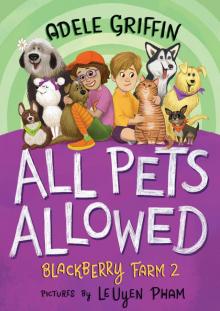 All Pets Allowed
All Pets Allowed Witch Twins Series
Witch Twins Series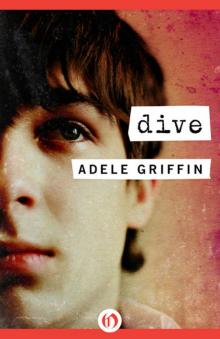 Dive
Dive V is for...Vampire
V is for...Vampire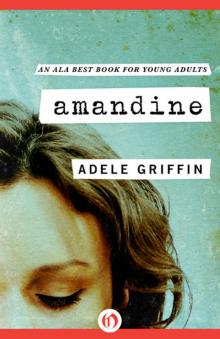 Amandine
Amandine The Knaveheart's Curse
The Knaveheart's Curse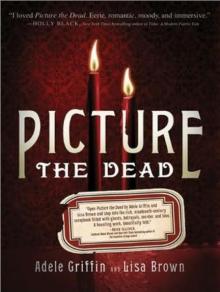 Picture the Dead
Picture the Dead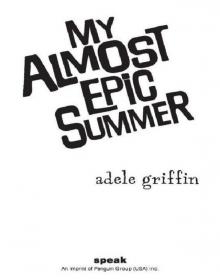 My Almost Epic Summer
My Almost Epic Summer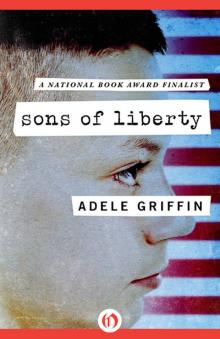 Sons of Liberty
Sons of Liberty Overnight
Overnight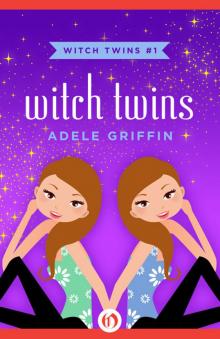 Witch Twins
Witch Twins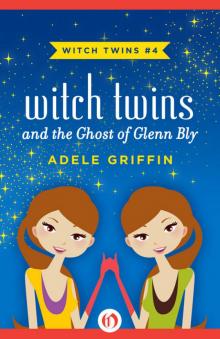 Witch Twins and the Ghost of Glenn Bly
Witch Twins and the Ghost of Glenn Bly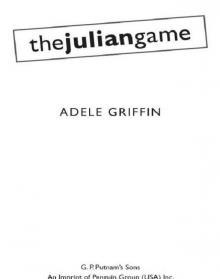 The Julian Game
The Julian Game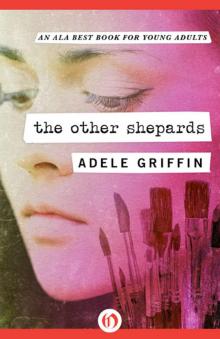 Other Shepards
Other Shepards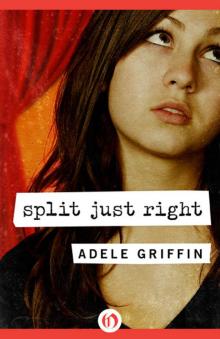 Split Just Right
Split Just Right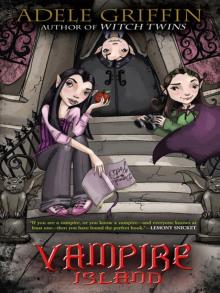 Vampire Island
Vampire Island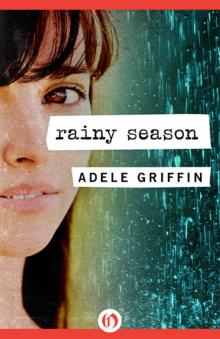 Rainy Season
Rainy Season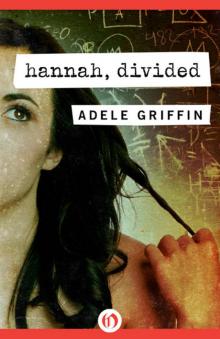 Hannah, Divided
Hannah, Divided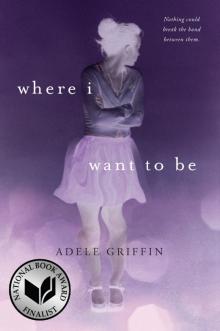 Where I Want to Be
Where I Want to Be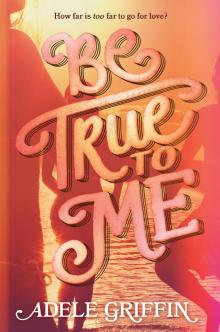 Be True to Me
Be True to Me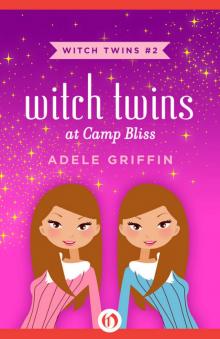 Witch Twins at Camp Bliss
Witch Twins at Camp Bliss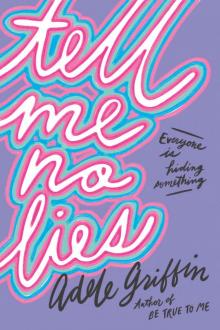 Tell Me No Lies
Tell Me No Lies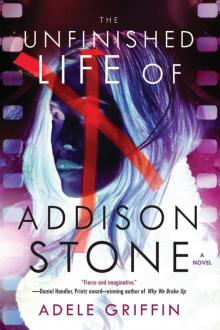 The Unfinished Life of Addison Stone
The Unfinished Life of Addison Stone